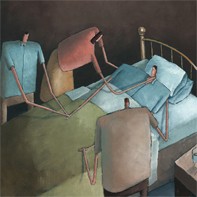Can civil disobedience change the law on asisting suicide?
The well publicised death of Mrs Nancy Crick in Queensland last year reopened the euthanasia debate. In their efforts to have the law changed, the pro-euthanasia lobby tried the new approach of having some of their members take part in an act of civil disobedience by attending Mrs Crick’s home at the time she was planning to commit suicide. The plan was apparently to have people present in such large numbers that it would be unlikely that they would each be prosecuted for the criminal offence of assisting suicide. If these people were not prosecuted, the law would fall into disrepute. If they were prosecuted and acquitted, others would be more confident that they would not be prosecuted if they were present as a mark of support at the suicide of a person who wanted to die because life was no longer tolerable. Each prosecution and acquittal would, the lobby hoped, undermine the law of assisted suicide and the law itself would gradually be changed.

